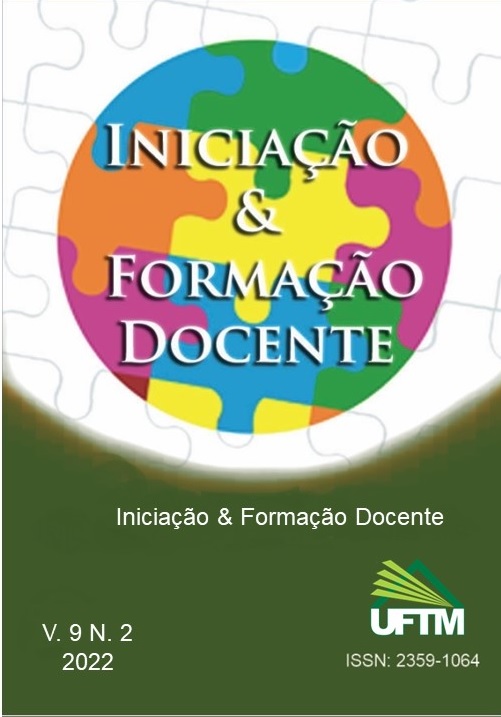IS IT POSSIBLE TO PERFORM PRACTICAL ACTIVITIES IN REMOTE TEACHING?
DOI:
https://doi.org/10.18554/ifd.v9i2.6151Abstract
With the advent of the pandemic caused by SARScov-19, the format of remote classes was installed in 2020, limiting the performance of field activities and laboratory practices, which can be considered a negative factor in biology teaching. In the search for alternatives to maintain the quality of teaching in the face of this reality, the present study aims to discuss the possibility of carrying out practical activities in the remote teaching format through the report of an experience developed with students of the Degree in Biological Sciences during the discipline of Invertebrate Zoology. The research took place at the Federal Institute of Pará, Campus Abaetetuba, with 33 students, in which, students were asked to build a homemade microscope and perform water collection and subsequent observation of microorganisms in it. Through the reports produced by the students at the end of the course, it was possible to identify the construction of three different models of homemade microscopes, water collection in 10 different environments and the visualization of individuals from five different groups of living beings. The activity demonstrated the possibility of holding practical classes guided through remote teaching, providing knowledge of local biodiversity, student protagonism and diversification of teaching practice.
Downloads
Published
Issue
Section
License
Copyright (c) 2022 INITIATION & TEACHER TRAINING

This work is licensed under a Creative Commons Attribution-NonCommercial 4.0 International License.
Autores do manuscrito deverão preencher e assinar a Declaração de Responsabilidades e Transferência de Direitos Autorais, que deverá ser anexada, pelo autor responsável pela submissão, no passo 4 do processo de submissão no sistema da revista (Clicar na opção “Browse”, selecionar o arquivo que deve ser inserido no formato pdf, clicar no botão “Transferir”, no campo “Título” digitar: Declaração de responsabilidades, depois clicar no botão “Salvar e Continuar” e prosseguir com o processo de submissão).
A Revista Iniciação & Formação Docente da Universidade Federal do Triângulo Mineiro está licenciado com uma Licença Creative Commons - Atribuição-NãoComercial 4.0 Internacional.
Baseado no trabalho disponível em www.uftm.edu.br.
Podem estar disponíveis autorizações adicionais às concedidas no âmbito desta licença em
http://seer.uftm.edu.br/revistaeletronica/index.php/revistagedeles/index


